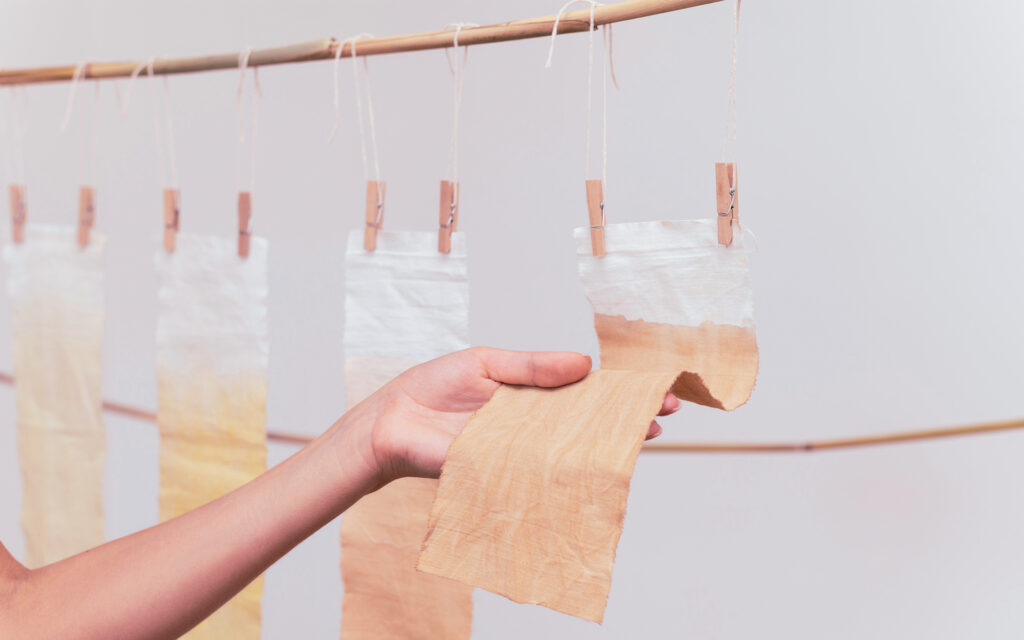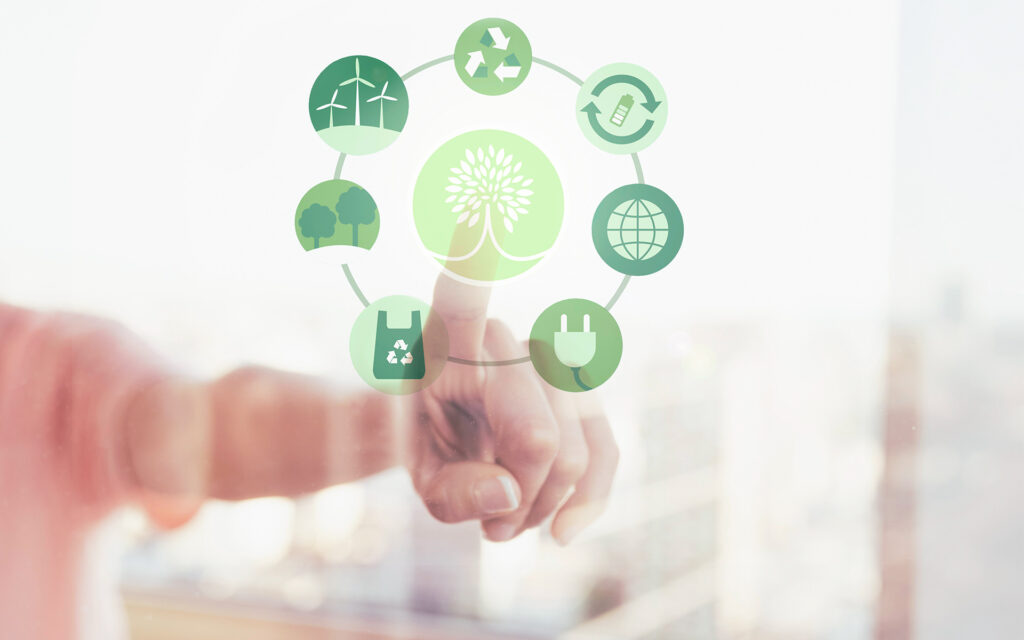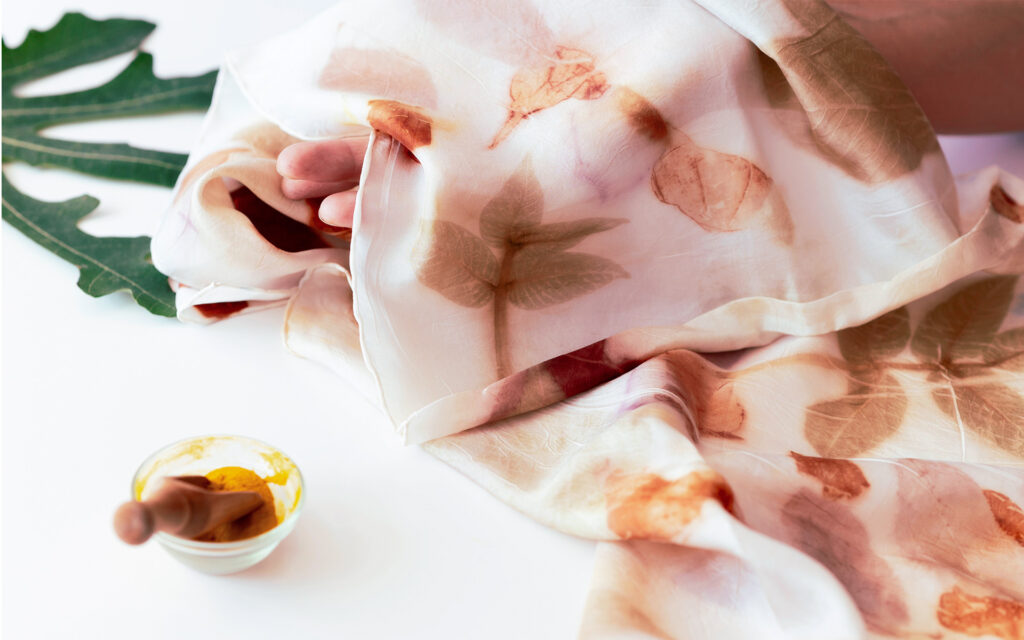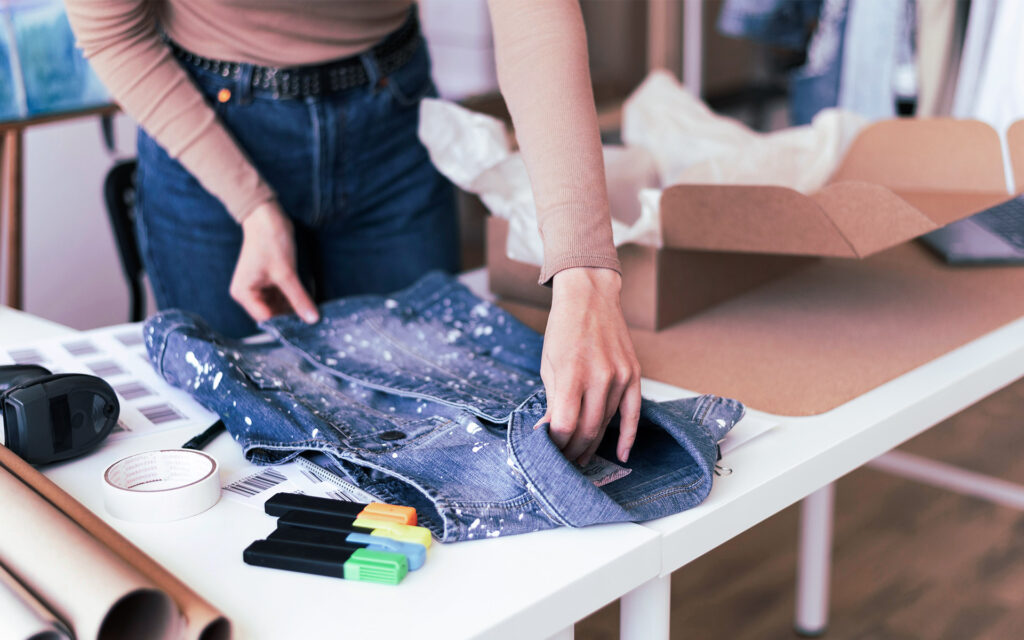Today’s consumers are increasingly aware of the impact their choices have on the planet. Being informed about sustainability certifications facilitates the task when looking for a sustainable garment and making a better choice in the purchase process.
In an industry accustomed to greenwashing, where some fashion firms bet on increasing the number of customers through deceptive marketing techniques, certifications are the ones that give transparency.

More sustainable fashion
Sustainability refers to the entire life cycle of a product: from cultivation to extraction of raw materials, from production to distribution for its commercialization, and from consumer use to subsequent reuse as recycling or disposal.

Sustainability certifications are granted by an independent third party. This confirms whether specific sustainability standards are met and guarantees that certain aspects of production have been executed responsibly.
Numerous organizations issue different sustainability certifications. Some only specialize in controlling and auditing, while others also provide educational initiatives or business support.
In addition, some are dedicated to products or processes. They focus on environmental standards (such as chemical control or the use of organic fibers); social (if they respect the labor rights and conditions of workers); animal treatment; circulars, and fair trade.

Mandatory certifications?
The lack of regulation in the fashion industry has provoked the emergence of these organizations that aim to ensure that certain conditions are met in the production process.
Although they are not mandatory, and each firm voluntarily decides on sustainability in its production chain, the truth is that more and more people are choosing to take responsibility for caring for the environment in front of a more committed consumer.
The traceability and transparency of a firm are indispensable conditions for a more sustainable fashion, and this is possible thanks to certifications.
Are they really beneficial?
There is no doubt that these certifications are useful tools that ensure that good practices have been followed in terms of sustainability.
However, with so many organizations offering various certifications, not all small businesses enthusiastic about sustainability can access them.
On the other hand, the Changing Markets Foundation finds in its report that some of the certifications act as bait for firms allowing greenwashing on a large scale, and consumers can be induced into a false sense of security.
Informed purchase
Among the organizations that issue sustainability certifications, we can find: Organic Exchange, Fair Trade, Better Cotton Initiative, Fair Wear Foundation, Worldwide Responsible Accredited Production, Oeko-Tex 100
Cradle to Cradle
This certification has been guiding brands such as Ralph Lauren or MUD Jeans along their value chain. It is helping to innovate and optimize materials, products, and systems to achieve immediate and long-term positive impacts.
It has five criteria for the certification: material health, material reuse, renewable energy use, water stewardship, and social responsibility.
According to the organization, any product or material that meets the standard requirements can receive certification based on four ascending levels of achievement: Bronze, Silver, Gold, and Platinum, depending on the performance of the product in each category.
The product’s lowest category achievement level determines its overall certification level to encourage continuous evolution and innovation.
Global Organic Textile Standard
GOTS is one of the most recognized certifications worldwide for textiles produced with organic fibers, which includes ecological and social criteria.
It has two types of products: 1) Organic (they contain 95% certified organic fibers); 2) those made with organic material (contain 70% certified organic fibers).
It also complies with the standards of the International Labour Organization, a specialized agency of the United Nations, ensuring social and environmental aspects.
This standard covers all production stages: manufacturing, packaging, labeling, marketing, and distribution. It also ensures that textiles are made from at least 70% organic fibers.

Textile Exchange
It is a global non-profit organization that drives positive action on climate change in the textile industry. It offers tools, resources, and initiatives to help farmers, suppliers, and firms find the next step toward sustainability from the beginning of the supply chain.
Develops, manages, and promotes a set of standards. It collects and publishes critical industry information and insights that enable brands and retailers to measure, manage and track their use of natural fibers and preferred materials.
The company says, “we are helping the textile and fashion industry to reconnect with the resources it uses.” Its strategy is to help reduce greenhouse gas emissions from fiber production and raw materials by 2030.
Alexander McQueen, Balenciaga, and Burberry are some of the brands which use their verification systems.
Certified B Corporation
B Corp evaluates if a company meets high standards of verified performance, accountability, and transparency in its supply chain and materials and workers’ rights, committing to create a positive impact on society and the environment.
To achieve this certification, the company must:
- Demonstrate high social and environmental performance by achieving a score of 80 or higher and passing the risk review;
- Make a legal commitment by changing its corporate governance structure to be accountable to all stakeholders, not just shareholders. Achieve benefit corporation status if available in its jurisdiction;
- Show transparency by allowing information about measured performance to be publicly available on its B Corp. profile.
Firms such as Ganni or Ecoalf have chosen it, and even the firm Chloé has joined the list, being the first luxury fashion house to do so.
EU Ecolabel
It is recognized in Europe and worldwide. The EU Ecolabel certifies that products meet high environmental standards throughout their entire life cycle: from raw material extraction, production, distribution, and disposal.
The label also encourages companies to develop innovative products that are durable, easy to repair, and recyclable.
Through this label, companies can offer real and reliable ecological alternatives to conventional products. This allows consumers to make informed choices and play an active role in the green transition.
There are other ways
When consumers decide to buy certified products, it sends clear signals of what path fashion firms should follow. Having a sustainable label or certification allows the consumer to make an informed decision.
But that does not mean that it is the only way or that there is no more work to be done.
And as consumers, it is not necessary to buy from brands with certifications to have a sustainable wardrobe. Buying less, mending and repairing, buying second-hand, or renting are also ways to be more sustainable.






